This article was medically reviewed by Luba Lee, FNP-BC, MS. Luba Lee, FNP-BC is a Board-Certified Family Nurse Practitioner (FNP) and educator in Tennessee with over a decade of clinical experience. Luba has certifications in Pediatric Advanced Life Support (PALS), Emergency Medicine, Advanced Cardiac Life Support (ACLS), Team Building, and Critical Care Nursing. She received her Master of Science in Nursing (MSN) from the University of Tennessee in 2006.
There are 8 references cited in this article, which can be found at the bottom of the page.
This article has been viewed 98,996 times.
Research suggests that weight loss is very common during and after cancer treatment.[1] While you're battling cancer, you may not have an appetite anymore, and you might experience symptoms like nausea that make it hard to eat. Experts agree that you need to meet your calorie, protein, and hydration needs to help you get the best treatment outcome possible. Fortunately, there are a few easy options for adding calories to your diet to support your nutritional needs.
Steps
Getting the Most Out of Meals
-
1Eat small meals regularly. Low appetite is a common side effect of cancer treatments. Oftentimes, you may lack the appetite to finish a full meal all at once. You can try to combat this by eating smaller meals throughout the day.[2]
- Eat about every 2 hours. Have small meals as well as snacks. Ask your doctor for a reasonable calorie count and try to break that down throughout your daily meals. Do not wait until you feel hungry as you might not notice hunger pains if you're feeling nauseous from treatment.
- Try to prepare meals and snacks ahead of time or have someone do so for you. It can be hard to make something to eat if you're not feeling well.
-
2Opt to increase calories when possible. Whenever you have the chance, add more calories to a dish. There are many ways to add a few hundred more calories to an existing meal:[3]
- Use whole milk and cream over skim or fat free varieties.
- Use milk instead of water for canned soup and packet sauces.
- Add grated cheese to pasta, mashed potatoes, eggs, and other dishes.
- Use extra filling in sandwiches.
- Buy full fat dairy products.
- Serve vegetables with a heavy sauce.
Advertisement -
3Seek nutrient dense foods. When trying to gain weight with cancer, you need to do so in a healthy manner. Nutrient dense foods have a lot of nutrients. While they tend to be low calorie, you can mix nutrient-dense foods with other high calorie options to help you gain weight and get necessary calories. Nutrient dense foods include:[4]
- Fruits and vegetables
- Whole grains and whole wheats
- Seafood and lean poultry, like meats, beans, eggs, and nuts.
-
4Eat your favorite foods more often. If you're struggling to keep your appetite strong, try to make yourself the kinds of foods you really enjoy. Eating your favorite meals more often can help entice you to eat even if your appetite is poor. Try to cook foods you really enjoy and eat them on a regular basis.
Making High Calorie Drinks
-
1Add protein powders to drinks. Protein powder can be added to drinks. This increase their total calories while upping your protein, which can help you gain weight healthily if you have cancer.[5]
- Go for nutritionally based powders (scandishake, enshake, calshake) and protein-specific powders (maxipro, protifar) over energy powders.
- You can add a teaspoon of protein powder to virtually any drink, from milk to juice to a soft drink. Most protein powders are tasteless, so they won't cause the drink to taste any different. However, you may notice a slight change in texture.
-
2Make your own smoothies. You can make nutritious, high calorie smoothies by mixing milk or yogurt with an array of fruits and vegetables in a blender. Experiment with portions and ingredients until you find something that tastes good to you. You can also buy ready made smoothies at many supermarkets.[6]
-
3Drink something with calories with meals. Try to have a drink that contains calories with meals instead of simple water. Go for something somewhat nutritious, however. Sugary beverages, like soft drinks, can be bad for cancer patients. Instead, go for whole milk, juice without added sugar, or a low sugar sports drink like Gatorade.[7]
-
4Use liquid supplements when your appetite is low. If your appetite is low, consider replacing one meal with a liquid supplement. While it's best to eat solid foods, if that's not possible for you try a liquid supplement.
- Some meal replacement smoothies are actually manufactured specifically for cancer patients. Your doctor can write you a prescription for liquid meals you can take on days you're too ill to eat.
- You can also buy over-the-counter meal replacement smoothies. However, you should still ask your doctor about what types would be best for you given your medical history.
- Smoothies can come in different flavors, like chocolate, vanilla, and strawberry. Many people dislike the taste but you can try adding a natural sweetener like honey.
Seeking Advice
-
1Ask your doctor about how to reduce your nausea. As nausea can be responsible for the low appetite that leads to weight loss in patients, managing nausea can help. Talk to your doctor about the best means to cope.[8]
- There are a variety of anti-nausea medication your doctor can prescribe. Your doctor will select a medication for you based on your medical history and what stage of treatment you're undergoing.
- Your doctor will probably also suggest a number of lifestyle changes. Drinking more fluids, avoiding unpleasant smells, using relaxation techniques, and getting comfortable can all help reduce nausea.
-
2Get personalized advice from a dietitian. Ask your doctor for a referral to a dietitian. A dietitian's job is to provide you with personal advice about your eating habits to help you gain weight. A sit down session with a dietitian can help you figure out ways to combat weight loss and gain weight while undergoing treatment.[9]
-
3Join a support group. Cancer support groups are present in many hospitals, churches, and community centers. You can also find support groups online if one is not available in your area. You can talk to other cancer sufferers about their issues with weight gain and ask what worked for them in regards to putting weight back on.
Expert Q&A
-
QuestionWould medical marijuana be more help gaining weight than prednisone if you have cancer?
 Luba Lee, FNP-BC, MSLuba Lee, FNP-BC is a Board-Certified Family Nurse Practitioner (FNP) and educator in Tennessee with over a decade of clinical experience. Luba has certifications in Pediatric Advanced Life Support (PALS), Emergency Medicine, Advanced Cardiac Life Support (ACLS), Team Building, and Critical Care Nursing. She received her Master of Science in Nursing (MSN) from the University of Tennessee in 2006.
Luba Lee, FNP-BC, MSLuba Lee, FNP-BC is a Board-Certified Family Nurse Practitioner (FNP) and educator in Tennessee with over a decade of clinical experience. Luba has certifications in Pediatric Advanced Life Support (PALS), Emergency Medicine, Advanced Cardiac Life Support (ACLS), Team Building, and Critical Care Nursing. She received her Master of Science in Nursing (MSN) from the University of Tennessee in 2006.
Board-Certified Family Nurse Practitioner Studies suggest that active compounds in marijuana have benefits in treating nausea, vomiting and loss of appetite. But at this time there is not enough evidence to recommend use of cannabis in the US in treatment of cancer and chemotherapy related weight loss compared to traditional therapy
Studies suggest that active compounds in marijuana have benefits in treating nausea, vomiting and loss of appetite. But at this time there is not enough evidence to recommend use of cannabis in the US in treatment of cancer and chemotherapy related weight loss compared to traditional therapy
References
- ↑ https://pubmed.ncbi.nlm.nih.gov/7424938/
- ↑ http://www.cancerresearchuk.org/about-cancer/coping-with-cancer/coping-physically/diet/managing/weight/boosting-energy-in-everyday-foods
- ↑ https://my.clevelandclinic.org/health/articles/16555-snack-ideas-for-weight-gain
- ↑ https://my.clevelandclinic.org/health/articles/16555-snack-ideas-for-weight-gain
- ↑ http://www.cancerresearchuk.org/about-cancer/coping-with-cancer/coping-physically/diet/managing/weight/high-calorie-drinks
- ↑ https://www.urmc.rochester.edu/encyclopedia/content.aspx?contenttypeid=85&contentid=p07328
- ↑ https://www.nhs.uk/live-well/healthy-weight/keeping-your-weight-up-in-later-life/
- ↑ https://www.mdanderson.org/cancerwise/how-to-manage-nausea-caused-by-cancer-treatment.h00-159459267.html
- ↑ https://www.mskcc.org/experience/patient-support/nutrition-cancer
About This Article
To gain weight back when you’ve had cancer, focus on eating small meals every 2 hours since you may not have the appetite to eat a full-sized meal all at once. When making and choosing your meals, go for ones with more calories and nutrients. For example, soup made with milk instead of water and whole grain brain instead of white bread. You can also add nutritionally based protein powders to your drinks to increase the number of calories you’re taking in. If you need additional support trying to gain weight, ask your doctor to put you in touch with a dietician who can give you some advice. For more help from our Medical co-author, including how to use liquid supplements when your appetite is low, read on!
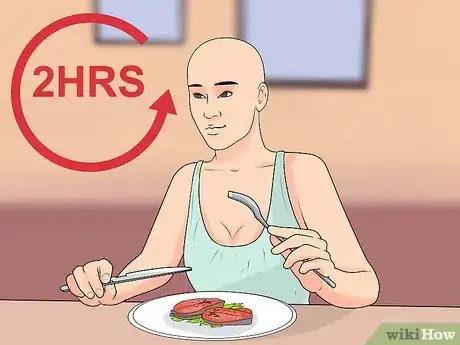
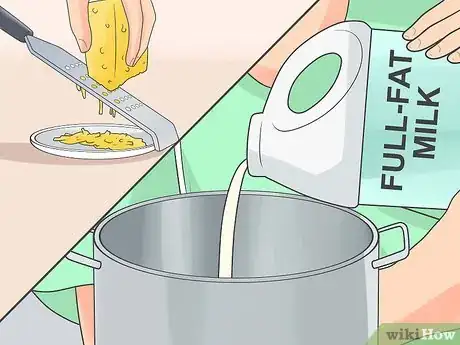
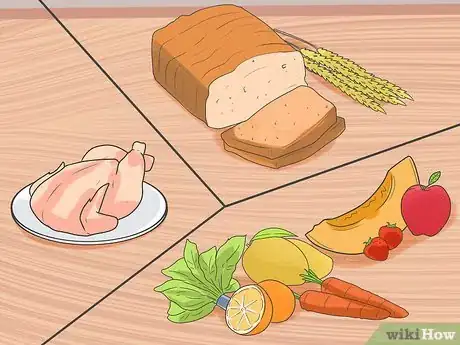
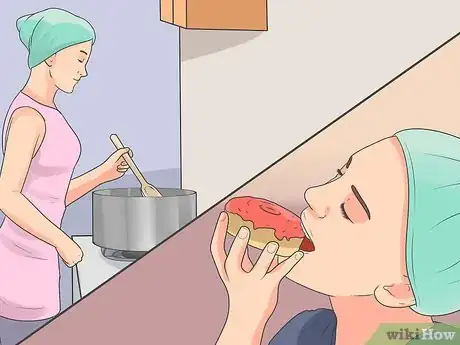
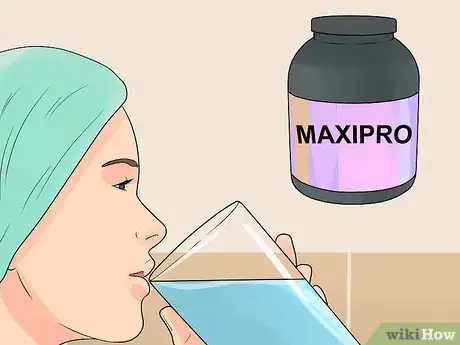

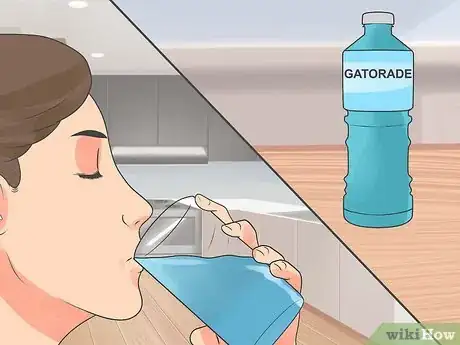

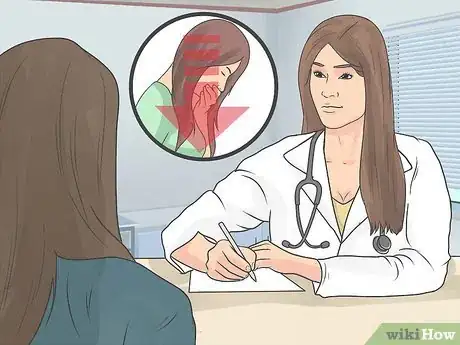
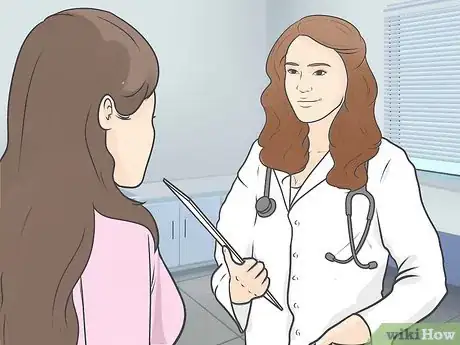


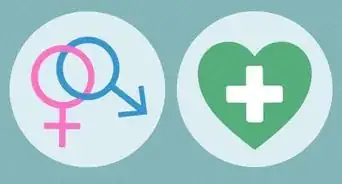
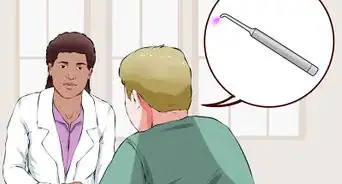
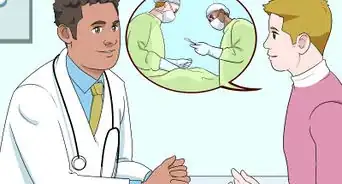

-Step-13.webp)


-Step-8-Version-3.webp)

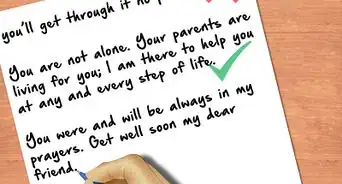













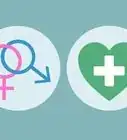
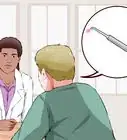




































Medical Disclaimer
The content of this article is not intended to be a substitute for professional medical advice, examination, diagnosis, or treatment. You should always contact your doctor or other qualified healthcare professional before starting, changing, or stopping any kind of health treatment.
Read More...